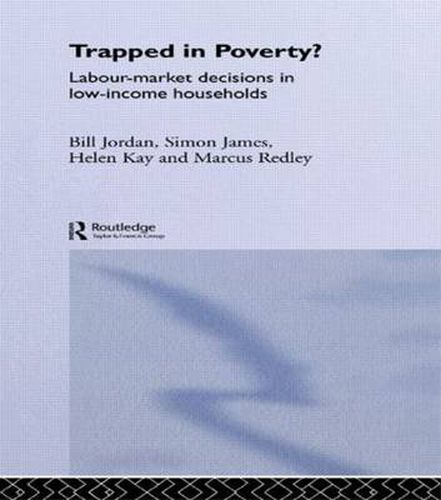Readings Newsletter
Become a Readings Member to make your shopping experience even easier.
Sign in or sign up for free!
You’re not far away from qualifying for FREE standard shipping within Australia
You’ve qualified for FREE standard shipping within Australia
The cart is loading…






Trapped in Poverty provides a detailed study of how men and women, with children, in low-income households decide about employment and claiming benefits. It shows how they account for their moves in and out of the labour market, relating such changes to various economic and social factors. It also considers the gender divisions of these decisions. Based on an extensive case study of a single town, Trapped in Poverty draws its information directly from the people involved, thereby showing how the poor view themselves and their relationship with the community. Focusing on one deprived neighbourhood, the authors investigated changes between employment, unemployment and self-employment in a fragmented, casualized labour market and have come up with fascinating results. This is an important book for its wealth of new empirical data. Its theoretical significance goes well beyond that - with the authors’ analysis of the interview accounts exploring the relationship between moral and economic reasoning.
$9.00 standard shipping within Australia
FREE standard shipping within Australia for orders over $100.00
Express & International shipping calculated at checkout
Trapped in Poverty provides a detailed study of how men and women, with children, in low-income households decide about employment and claiming benefits. It shows how they account for their moves in and out of the labour market, relating such changes to various economic and social factors. It also considers the gender divisions of these decisions. Based on an extensive case study of a single town, Trapped in Poverty draws its information directly from the people involved, thereby showing how the poor view themselves and their relationship with the community. Focusing on one deprived neighbourhood, the authors investigated changes between employment, unemployment and self-employment in a fragmented, casualized labour market and have come up with fascinating results. This is an important book for its wealth of new empirical data. Its theoretical significance goes well beyond that - with the authors’ analysis of the interview accounts exploring the relationship between moral and economic reasoning.